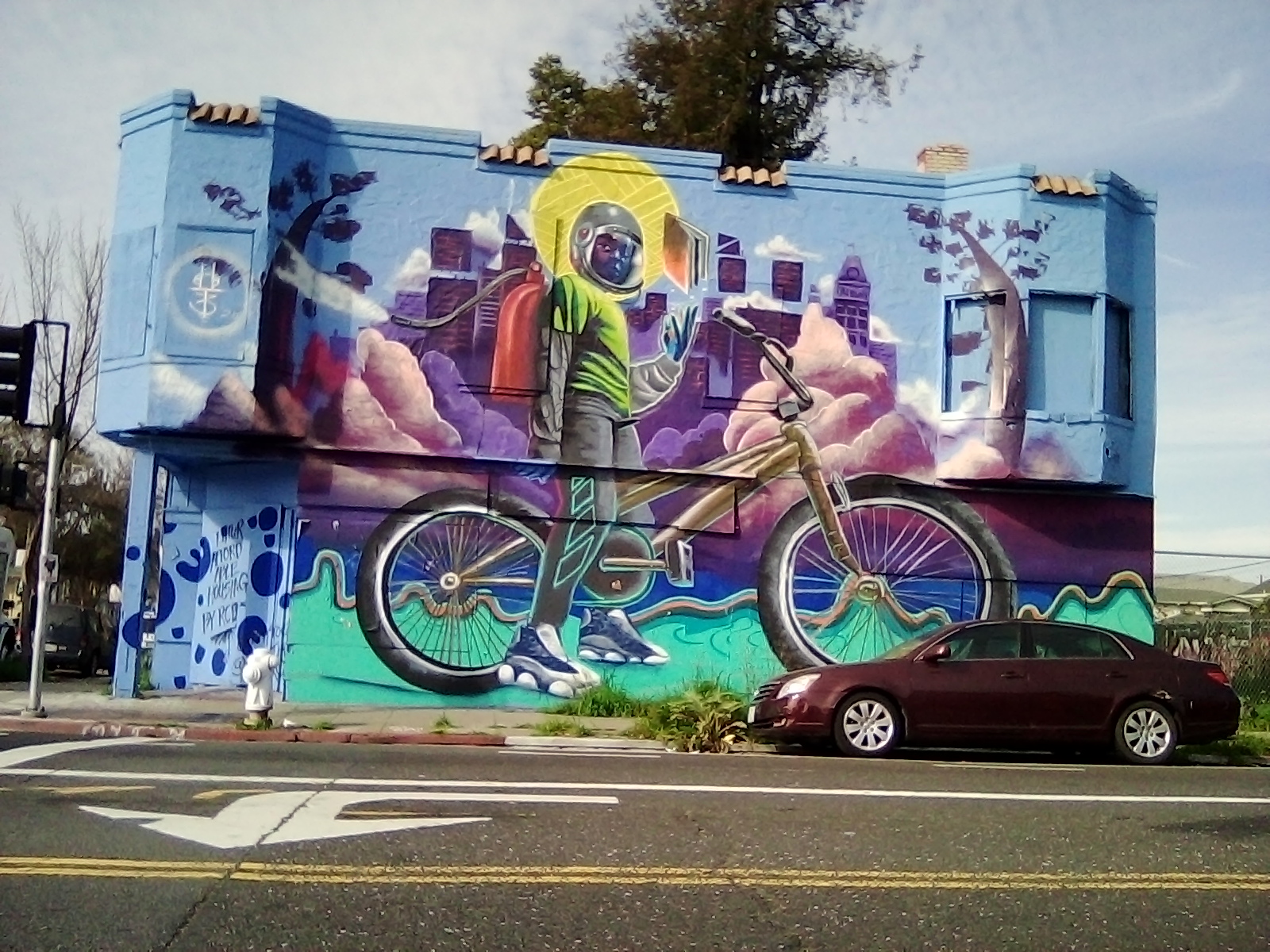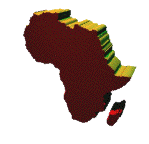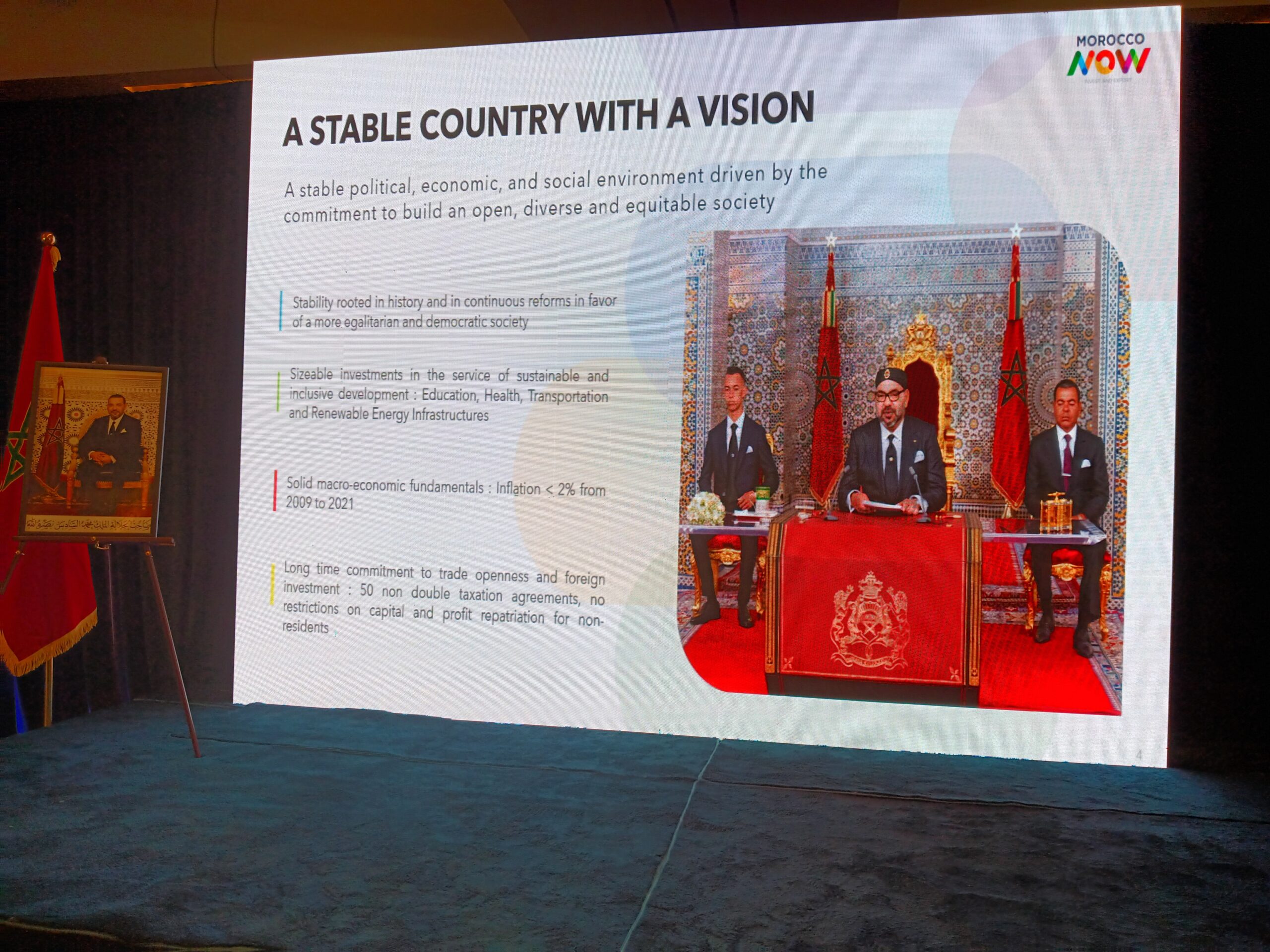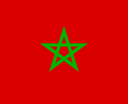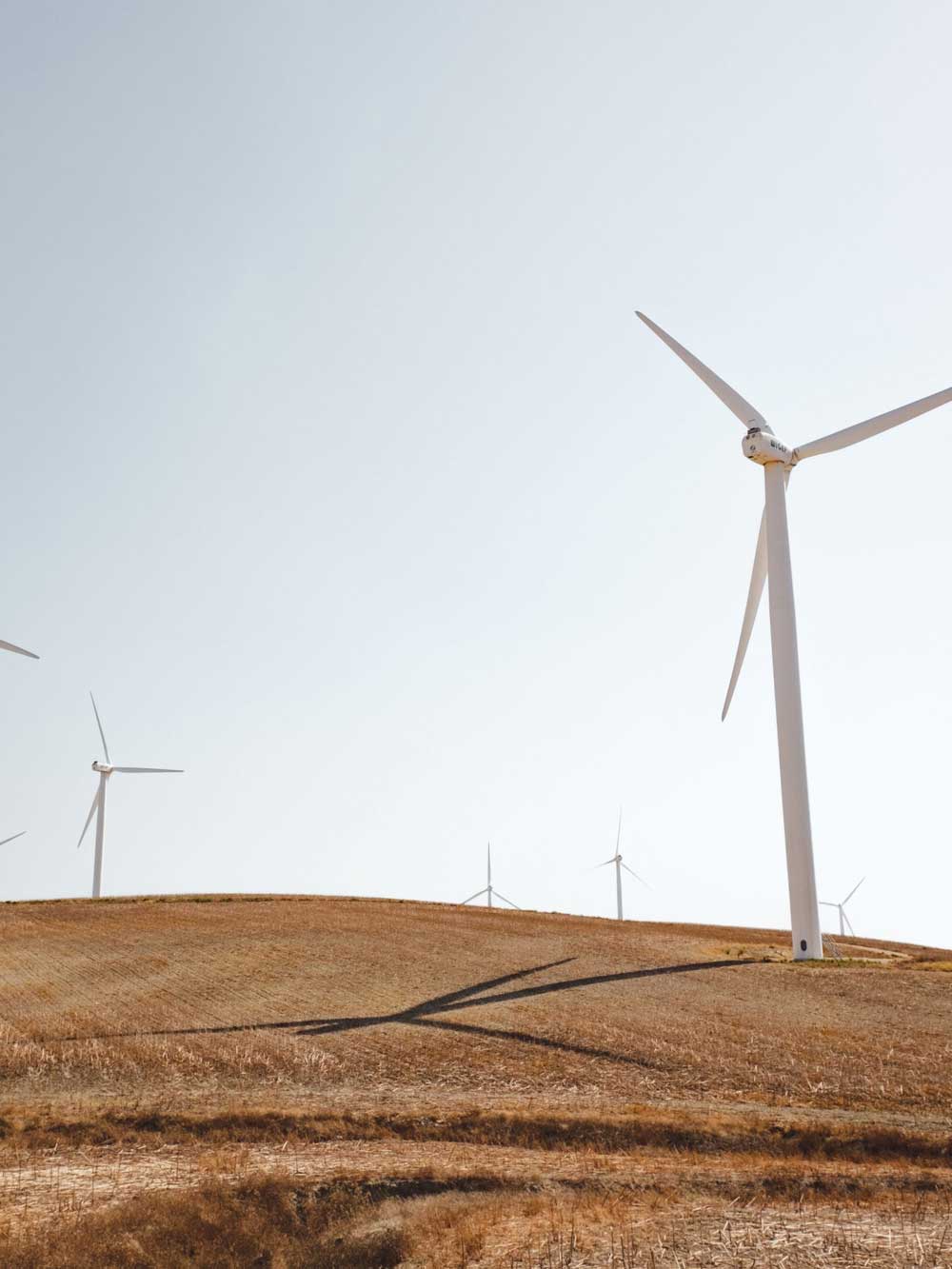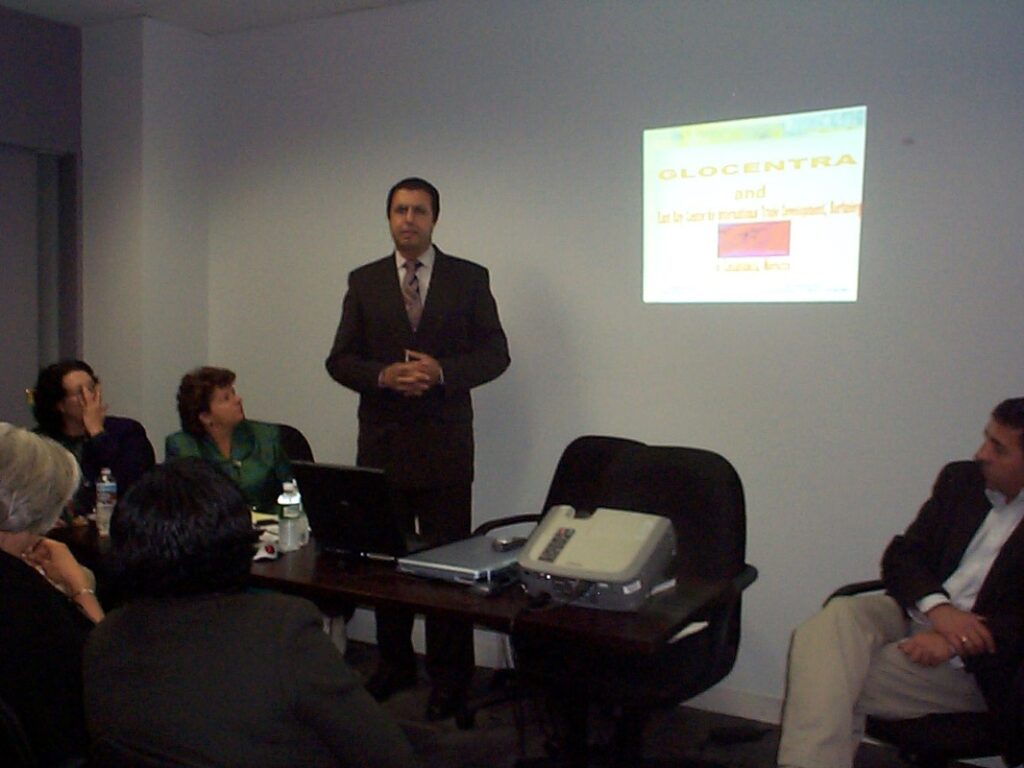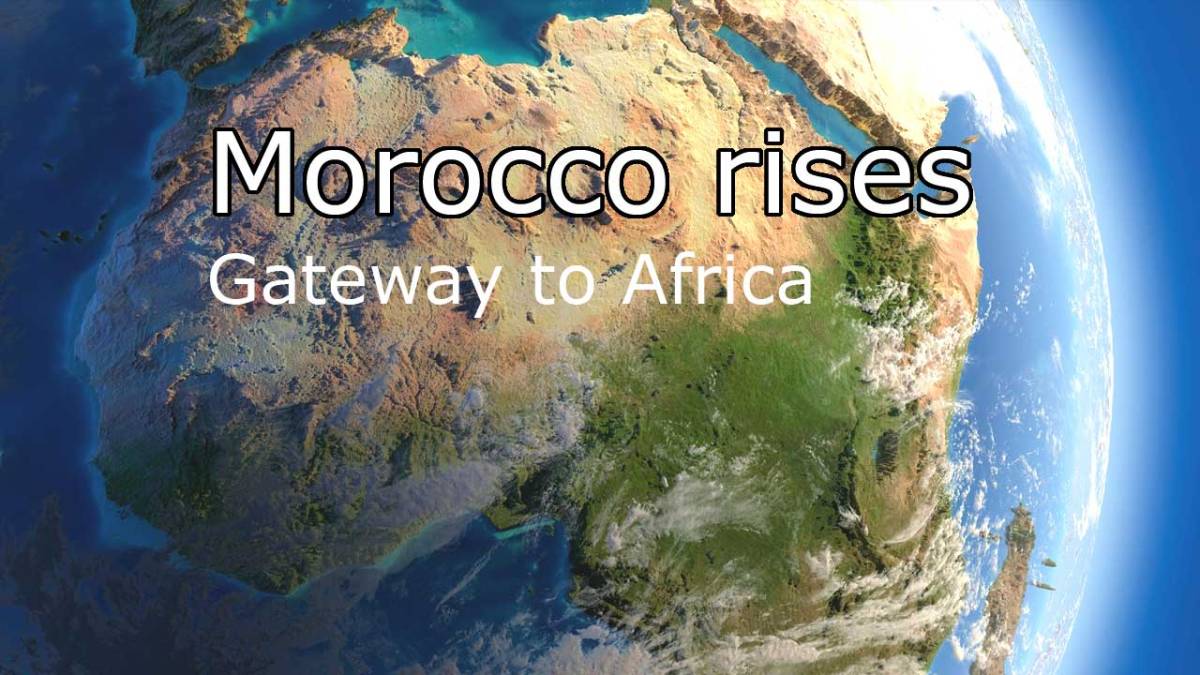
The power of networking
- 77% of in-person attendees in 2023 were CEO, Managing Director, Vice President or Director level meaning you are amongst top decision-makers
- An opportunity to establish new relationships and strengthen existing ties through the summit dinner, drinks reception and networking lunch
- You’ll be joining a prestigious business community from across Africa and beyond
Here are some economic and investment summits in Africa:
- 2023 BRICS Summit: South Africa hosted the BRICS Summit.
- Financial Times Africa Summit: A one-day event for business leaders, politicians, and financiers.
- U.S.-Africa Leaders Summit: Built on shared values to foster new economic engagement.
- Third Turkey-Africa Partnership Summit: Held in 2021.
- India-Africa Forum Summit: Last held in 2015.
Other summits include:
- Shaping Africa’s Future: Geopolitics. Business. Sustainability.: Brings together people from policy, business, and academia from African and European countries.
Some characteristics of African economic development include:
- Economic growth coexists with severe poverty.
- Considerable disparities between regions and countries.
- Resource exploitation and economic diversification are both being pursued.
In 2023, Africa’s economy slowed to 3.3 percent from 4 percent in 2022. Growth is expected to rebound to 4 percent in 2024.
The Importance of Economic Summit in Africa
By Shirley Ze Yu is Director of the China-Africa Initiative at the Firoz Lalji Institute for Africa at LSE, and senior practitioner fellow at the Ash Center, Harvard Kennedy School.

Economic and investment summits are important for the economic development of every country in the world. The purpose of an economic summit or forum is to position stewardship at the heart of investment decision-making by facilitating dialogue, creating long-term solutions, and enhancing value.[1]Participants can discuss a wide range of subjects including investments, trends in the financial industry, market opportunities in the investment industry, good practices, and related topics. Other objectives of economic and investment summits include the following:
- Providing a global platform for engagement and dialogue on emerging and key issues related to investing for sustainable development.[2]
- Advancing projects to bankable stage, by effective project preparation as well as efficient transaction advisory services that advances deals in the Africa Investment Forum pipeline.[3]
- Helping Africa finance its economic development projects and agenda.
- Promoting and facilitate global trade between Africa and the rest of the world.
- Creating a solid platform for the African diaspora to contribute to the development of the continent.
The significance of economic and investment summits is undeniable. Africa has a huge need of capital investment necessary to compete in the global economy. The continent is largely underdeveloped in a variety of sectors. Therefore, the promotion of capital investment remains a gigantic alternative to close this gap and advance Africa economically.
US-Africa Leaders’ Summit
U.S.-Africa Leaders Summit

A general view during the U.S.-Africa Leaders Summit at the Walter E. Washington Convention Center in Washington, D.C. on Tuesday, December 13, 2022 (U.S. Department of State)
The US-Africa Leaders’ Summit is another major international forum to be considered. It was born on August 4-6, 2014. President Barack Obama initiated this great program to consolidate ties with African nations based on clear principles such equal respect, mutual interests, and common values. For the United States, it represents a unique opportunity to build solid rapports with their African counterparts on several fronts: economic, political, diplomatic, geopolitical, and security. Since its inception in 2014 under President Barack Obama’s presidency, the US-Africa Leaders’ Summit has yielded several great fruits. For example, the 2022 Summit aims to:
- Better foster new economic engagement;
- Reinforce the U.S.-Africa commitment to democracy and human rights;
- Mitigate the impact of COVID-19 and of future pandemics;
- Work collaboratively to strengthen regional and global health;
- Promote food security;
- Advance peace and security;
- Respond to the climate crisis; and
- Amplify diaspora ties.[1]
Africa represents a great opportunity for both the US and the world. The Summit offers excellent pathways to tackle the challenges African nations face. The Summit provides the US with an open opportunity to engage directly with African leaders, including political leaders, business officials, entrepreneurs, and the diaspora. It also engages with major institutions on the continent such the African Union (AU), Economic Community of West African States (ECOWAS), and many more.
Forum on China – Africa Cooperation
The Forum on China-Africa Cooperation (FOCAC) was established in 2000 as a uni-multilateral partnership platform between China and 53 African states.[2] Like any other summits, the FOCAC is a platform economic cooperation, diplomatic exchange, security relations development, and social interactions between China and Africa. The forum has a clear objective and operating mechanism: to forge a new partnership with Africa and become the world’s most great power by 2049.
The New Africa-France Summit
The aim of this event, with a new format, new actors and new themes to address new challenges is strengthen the bonds between France and Africa.[3] Through this summit, France attempts to reshape its relationship with Africa in several domains: economy, security, business, culture, and politics.

Example of Economic and Investments Summits in Africa
There exist several economic and investment summits in Africa. They include: Nigerian Economic Summit, Africa Investment Forum, Africa Economic Conference, Invest in Africa Summit, Invest in Africa Connect, and Corporate Council on Africa U.S.-Africa Business Summit. Summits are organized by both African leaders, world investors, and governments.
1. The Nigerian Economic Summit
The Nigerian Economic Summit is a partnership between the Nigerian Economic Summit Group and Federal Ministry of Finance, Budget, and National Planning. The first Nigerian Economic Summit was held from February 18-20, 1993. It was held to build a dialogue an economic dialogue between the public and private sector in Nigeria. Since that first Summit, the Nigerian Economic Summit Group, a private sector led think tank, has organized the annual Nigerian Economic Summit in partnership with the Federal Government of Nigeria.
2. Africa Investment Forum
The Africa Investment Forum is Africa’s investment marketplace, championed by the African Development Bank and its partners, to accelerate the closure of the continent’s investment gaps. The Africa Investment Forum operates as a multi-stakeholder, multi-disciplinary platform dedicated to advancing projects to bankable stages, raising capital, and (c) accelerating the financial closure of deals. It is by far one of the most important economic and investment platforms on the African continent.
Figure: The Africa Investment Forum

Source: African Financial Development Bank, 2022.
A flagship initiative of the African Development Bank, the Forum was launched in 2018 with seven other founding partners: Africa 50; the Africa Finance Corporation; the African Export-Import Bank; the Development Bank of Southern Africa; the Trade and Development Bank; the European Investment Bank; and the Islamic Development Bank.
The Africa Investment Forum vision translates into three reinforcing objectives:
- Advancing projects to bankable stage, by effective project preparation as well as efficient transaction advisory services that advances deals in the Africa Investment Forum pipeline;
- Capital raising to mobilize partners and investors, especially institutional investors, for increased co-financing; and,
- Accelerating financial closure of deals through a coordinated approach.[1]
Combined with $32.8 billion from the rescheduled 2021 Africa Investment Forum Market days—which took place as virtual boardrooms in March this year—the forum has mobilized a total of $63.8 billion of investment interest this year. Since its inception in 2018, the Africa Investment Forum platform has mobilized over $100 billion in investment interests.[2]The forum showcases the Africa Investment Forum’s founding partners’ joint resolve to help unleash Africa’s investment potential in such critical sectors as infrastructure, agriculture, energy, education, the creative industries, sports, and transactions that champion women entrepreneurs.
3. Africa Economic Conference

Source: United Nations Economic Commission for Africa
The 2022 African Economic Conference (AEC 2022), jointly organized by the African Development Bank (AfDB), the Economic Commission for Africa (ECA), and the United Nations Development Program (UNDP), is planned with the theme “Supporting Climate-Smart Development in Africa”. The conference brings together a variety of stakeholders—including policymakers, climate experts, the private sector, researchers, and youth—to discuss the challenges posed by climate change, identify opportunities and strategies for adaptation and mitigation, draw lessons from successes, identify key strategies for financing mobilization and draft an action plan to support the low-carbon and climate-resilient development of Africa.
4. Invest in Africa Summit
AFSIC – Invest in Africa Summit is one of the most important forums for Investment, Trade and Business into Africa. Invest in Africa Summit is recognized as a unique forum to initiate and promote business networking across Africa and to originate and conclude trade, investment, and close new business deals. The Summit gathers 1000-plus key economic players such as government delegations and policy makers, high-profile African leaders, project developers, investors, and entrepreneurs. The 2-days event provides a unique platform to gain strategic knowledge about African investment opportunities and business networking. The convention will cover economic sectors such as manufacturing and infrastructure development, agribusiness, Renewable Energy, Real Estate transportation, Digital Technology tourism, Financing SMEs, Women in Business, Healthcare, telecommunications, and Fintech, and natural resources sectors.[1]
5. Invest in Africa Connect
Invest Africa Connect is an initiative of Invest Africa, a leading business and investment platform, using over sixty years’ experience in Africa to provide its members with unique information and exposure to business opportunities. Through our Invest Africa Connect program, the organization partner with must-attend conferences, providing our members discounted rates on delegate seats, and invitation to special events taking place alongside these conferences. Invest in Africa Connect plays a central and influential role in Africa’s socio-economic growth by guiding sustainable capital towards key prospects on the continent. Headquartered in London, Invest Africa also operates from four chapter cities: Johannesburg, New York, Dubai, and Geneva.[2]Invest in Africa Connect is on the way to contribute to Africa’s private sector development in several ways.
6. Corporate Council on Africa U.S.-Africa Business Summit
The U.S.-Africa Business Summit is the largest and most influential U.S. conference on doing business and investing in Africa. The Summit explores a renewed commitment by both public and private sector stakeholders to building stronger U.S. and Africa trade, investment and commercial ties as we emerge from unprecedented health and economic challenges. The U.S.-Africa Business Summit brings together several U.S. and African private sector executives, international investors, senior government and multilateral stakeholders. Our objective is to enable you to connect with government and private sector decision makers over the course of four days and to deliver the insights that you need to move your organization forward.[3]The Summits include: plenary sessions and sector-oriented panels, invest in Africa country forums, welcome receptions and gala diners, private meetings, high-level dialogues, doing business in Africa with Prosper Africa agencies, B2B and B2G networking, and exhibition centers.[4]
What are implications of Economic Summits for Africa?
Economic summits carry out several implications no matter where they are held in Africa.
- Economic growth
Economic Summits impacts economic growth and have the capacity to create a continental capital development ecosystem that benefits countries and society in general. The level of Africa’s economic development will be driven by the degree of investment opportunities it builds directly or indirectly. The more investment a country makes it in its economy the more economy growth it gets. For example, economic summit drives foreign direct investment.
FDI inflows to the African continent and subregions, 2020-2021

Source: World Investment Report 2022
This figure indicates that Africa has continued to attract foreign direct investment from a wide range of partners worldwide. Africa has a substantial private investment gap. Every business needs money to grow and generates revenue. For instance, from 2020 – 2021, Africa’s five regions: North, West, Central, East, and South Africa, attracted $83 billion.[1]
In the majority of cases, these businesses are spearheaded by Africans under the age of 35. In fact, 2021 was a record-breaking year for Africa’s start-up scene, which secured over $2 billion in funding. The African Development Bank (AfDB) attributes this mostly to “large economies and sizeable populations.”
- Human Capital Development
There is an undeniable relationship between human capital and economic growth. What makes it possible is the amount of money and quality of capital investment. Capital investment is a critical contributor to the development of capabilities and knowledge.
Countries with high-quality human capital stocks can benefit more from the financial sector, as many scientists, researchers, doctors, accountants and financial analysts in these countries can make efficient and effective choices among different alternates. They are more efficient and effective in using opportunities and resources and can also innovate better to support the financial sector growth. These are all essential to promote growth in the economy.[2]
There is an excellent relationship between economic summit and financial capacity building and quality human resource development. A well-developed economic system is key to the growth of society in general. In this growing digital world, young people need to be trained to the new technology innovation and development norms as they influence the future of work. Money investment and economic growth are strictly related by the fact that a robust venture capital and foreign direct investment are facilitators of economic development. Economic summits should be at the center of Africa’s international investment attraction for development. Economic summits serve as platforms for African nations to accelerate cooperation and partnership for private sector development. Economic investment and human capital development are intrinsically linked or related. Investments in human capital (youth development) can generate returns.
- At the diplomatic level
Economic investment creates or reinforces two types of diplomacy: business and economic. In the international relations, business and economic institutions are basically made up of rules and principles. In business management, it is called contract. In pure diplomacy, it is called cooperation. What is cooperation or international cooperation? International cooperation tends to be associated with development and economic growth. International economic cooperation between countries and/or companies can be seen as a vehicle for diplomatic relations development. Economic and business diplomats facilitate the creation of investment opportunities, build strong international business relations with foreign nations, and act as advisors to young people in their international career development. By organizing and promoting summits, countries seek to consolidate their economic ties and business diplomatic machine in several ways possible.
- At the geopolitical level
Secretary of State Antony Blinken declares at the US-Africa Leaders’ Summit: “Africa is a major geopolitical force. It’s one that has shaped our past, it’s shaping our present, and it will shape our future.”
Figure: Anthony Blinken at the US-Africa Leaders’ Summit 2022

Source: US Africa Media Hub on Twitter
Africa represents a gigantic geopolitical battleground for major powers such as the US, France, Russia, and China. Home to what the world needs to continue its development and innovation, Africa remains the most significant geopolitical force. In support of this argument, Ambassador Rama Yade, director of the Atlantic Council’s Africa Center writes:
‘’US policy in Africa has been thrown off course by China, which is methodically implementing a grand, 21st-century Marshall Plan for the continent through its Belt and Road Initiative. And Beijing is hardly to blame. As home to a large share of the world’s water resources, untapped arable land, and by 2050 nearly 25 percent of the world’s population, Africa has emerged as the most important piece on the geopolitical chessboard. Without a drastic shift in strategy, the United States is on the verge of being on the outside looking in for decades to come’’.[1]
It is clear from the above that Africa will continue to attract diverse great powers for its significant amount of natural resources. The continent continues to grow in radical importance for the world including nations like China, America, Russia, and many more. The growing influence of China and Russia in Africa also worries America and its allies. Therefore, there will always be confrontations between these major powers out there. Rama Yade also emphasizes this rivalry in the following text:
‘’China is playing the long game in Africa and has strategically invested in infrastructure projects including railroads, ports, dams, and hydropower-generation sources. But these investments could be the warm-up act for China’s entry into fields traditionally dominated by the United States—namely technology and banking—where it aspires to compete with American heavyweights like Microsoft, Boeing, Google, and General Electric. Such game-changing moves would play into China’s larger ambition of unseating the US dollar’’.[2]
Economic and business summits also have geopolitical implications. Most summits are organized states and their institutions. The nature of these events becomes a political one. For example, China-Africa Forum is a pure product of the Chinese government, creating a clear pathway for them to invest in infrastructure development projects in Africa.
Key Lessons Learned from Organizing Economic and Investment Summits in Africa
There are several lessons to draw from the ongoing development and organization of economic and investment summits on the African continent. We see several benefits and challenges for the continent.
- Africa’s development is impossible without proper venture capital investment

Source: Center for Economic Policy Research, 2021
Africa needs capital to grow. This comes from an effective combination of venture capital and foreign direct investment, and other investment opportunities. Dr. Eisen reports that lack of capital access is big problem and blocks the growth of innovation and entrepreneurship in Africa:
In order for Africa to fully utilize its business potential, however, there are many challenges to overcome. It is estimated that 70% of African startups lack access to talent and capital to grow their businesses. The proportion of female-founded startups in the first half of 2022 was only 27%, and investors based in Africa accounted for 29% of total investments. Building a diverse startup ecosystem at home is crucial to maintaining growth momentum and intensifying the technological and digital revolution. African VC firms, accelerators, entrepreneurial support programs and grants from government and nonprofit organizations should comprise this ecosystem.[1]
Dr. Leon Eisen is an inventor, entrepreneur, board member of the Global Africa Leadership Council, WBAF Senator and Oxitone Medical founder. His assessment of the grand challenges facing African entrepreneurs reinforces the urgent needs for African leaders to build more economic summits that would help close this huge gap. With proper management and organization, these investment would generate sufficient funds to accelerate the building of more entrepreneurs on the African continent. It is clear that Africa’s competition in the global economy will be highly dependent on how successful its youth are.
- The venture capital big 4 investment paradox is a big problem
The World Economic Forum reports that 92% of Africa’s investment in tech is won by just four countries: Nigeria, Egypt, Kenya, and South Africa. Known as Africa’s ‘’Big 4’’, Nigeria, Egypt, South Africa, and Kenya continue to attract the important of foreign investment in terms of venture capital funding. The African Development Bank’s (AfDB) 2021 report states that these four countries account for about a third of the continent’s start-up incubators and accelerators and receive 80% of foreign direct investment (FDI) into Africa.[2]One of the plausible ways to address that issue is to facilitate greater investment opportunities everywhere in Africa.
In spite of global inflation and a macroeconomic environment that discourages investments, Africa’s venture capital ecosystem remained bullish in the first half of 2022. There were 445 venture capital deals (to 300 unique companies), setting another record with over $3.5 billion raised. Additionally, it is predicted that VC deals will reach $7 billion by 2023.[3]
The venture capital funding and raising predictions for the next coming years are promising. It is clear signs that the future of business is in Africa. Economic summits constitute great opportunities to finally embark Africa in the next development flight.
- The building of responsible investment leadership and opportunities
Several nations in Africa faces several challenges in attracting regional and international investors. Examples of problems include poor infrastructure, corruption, poor international credit rating, and violence. Responsible investment leadership is crucial. In the current business environment, characterized by change and new and sometimes unpredictable challenges, it is important that leaders have the capability to act responsibly, to deliver a business which meets those challenges without causing detriment to their stakeholders or the world in which they exist.[4]
Responsible investment leadership can be seen to bring value and benefits to institutions and young people in Africa. Venture capitalists and investors do not invest in a country that does not fight corruption or create transparent capital investment protection policies. African leaders can all play a significant role in the development of a great continental economic development ecosystem by committed to being responsible investment leaders. A responsible investment in human capital, youth development, and economic development will benefit in a multitude of ways. African leaders should hold themselves accountable, so they should exemplify the characteristics of responsible investment leaders and encourage other populations to do so. A key role for responsible leaders particularly is to ensure that the country or organization is not simply focused on economic development objectives, but rather to propose and implement other key metrics, and provide evidence of the positive impact of responsible decisions. Calling for investment can assist with economic growth, although it is significant that not all leaders behave responsibly and have a measurable impact on society. By promoting responsible capital investment leadership, nations will contribute to a better society of culture and performance at all levels. Responsible investment leadership will contribute to the development of an ecosystem that will not leave African entrepreneurs’ hostage to the ever-growing big dollar whims of several venture capitalists and foreign investors.
Conclusion: where do we go next?
Africa is at the center of gigantic economic stakes for the world. Economic and investment summits constitute excellent engines that Africa should use to increase investment opportunities and improve the economic situation out there. Considering the above lessons African governments and policymakers should encourage international investment marketplaces through strong public-private partnerships. Money will always become the fuel that keeps an economy running. Therefore, economic and investment platforms such as summits and conferences will still be the center stage of capital raising through which Africa will grow its economy. Institutions such as the African Development Bank, US Chamber of Commerce, US Corporate Council on Africa, World Economic Forum, United Nations Conference on Trade and Development (UNCTD) can assist in the provision of economic summits to contribute to capital investment on the African continent. They provide platforms for engagement and dialogue on emerging and key issues related to investing for sustainable development. For Africa in particular, economic summits to promote new investments in industry can contribute to a significant amount of economic development and societal changes. International investment platforms will continue to become a driving force for a more inclusive and sustainable continental economic growth at all levels. The consequences of economic summits will be potentially far-reaching for the configuration of the continental value chain with big implications for economic development. Although most countries see a tiny fraction of venture capital investment as opposed to the Big 4’s, the promises of current successful investment promotion platforms throw a huge amount of optimism in the air.
Economic summits organized in Africa or by Africans across the world, like any other forms of investment platforms, will contribute to the construction of an incommensurable explosive economic dynamic, rebuilding the capital investment culture necessary to make Africa compete in the global economy. Economic summits help foster a solid innovation environment that sustains financial development and growth. Most significantly for making Africa the center stage of the world’s future and emerging as an economic powerhouse.
To that end, African leaders must encourage the building and organization of more economic summits that could be critical ways for generating capital funding and foreign direct investment, catalyzing new employment and business development in Africa, helping more young people find a place in a changing continental and global economy, and changing the economic story of a continent that is really one of the world’s greatest diplomatic machines.
As long as Africa does needs venture capital investment to grow and as far as the venture capital investment game continue to be played out across the globe, Africa will just sit and Watch. Indeed, young leaders will find ways to grab their parts of the cake.
Notes
Shirley Ze Yu is Director of the China-Africa Initiative at the Firoz Lalji Institute for Africa at LSE, and senior practitioner fellow at the Ash Center, Harvard Kennedy School.
Special note
The views expressed in this note can be attributed to the named author only.
[1]Leon Eisen (2022). Africa Is A Tech Hub On The Rise. Forbes. Forbes Business Council. https://www.forbes.com/sites/forbesbusinesscouncil/2022/11/10/africa-is-a-tech-hub-on-the-rise/?sh=36565dbc2736.
[2]African Financial Development Bank (24-Sep-2021). Entrepreneurship and Free Trade: Volume II — Towards a New Narrative of Building Resilience. African Development Bank (AfDB’s) 201Report. https://www.afdb.org/en/documents/entrepreneurship-and-free-trade-volume-ii-towards-new-narrative-building-resilience.
[3]Leon Eisen (2022). Africa Is A Tech Hub On The Rise. Forbes. Forbes Business Council. https://www.forbes.com/sites/forbesbusinesscouncil/2022/11/10/africa-is-a-tech-hub-on-the-rise/?sh=36565dbc2736.
[4] ACCA (2022). Responsible leadership. https://www.accaglobal.com/pk/en/student/exam-support-resources/professional-exams-study-resources/strategic-business-leader/technical-articles/responsible-leadership.html.
[1]Rama Yade (2021). Africa is America’s greatest geopolitical opportunity. Does the US know it? AfricaSource. https://www.atlanticcouncil.org/blogs/africasource/africa-is-americas-greatest-geopolitical-opportunity-does-the-us-know-it.
[2]Ibid (2021).
[1]Jean Narcisse Djaha (2022). Africa Will Shape the future of the World
[2] Sarwar, A., Khan, M.A., Sarwar, Z. and Khan, W. (2021), “Financial development, human capital and its impact on economic growth of emerging countries”, Asian Journal of Economics and Banking, Vol. 5 No. 1, pp. 86-100. https://doi.org/10.1108/AJEB-06-2020-0015
[1]Invest in Africa Summit 2023 (2022). The Conference. https://investinginafrica.eu/the-conference.
[2]Invest in Africa. Invest in Africa Connect. https://www.investafrica.com/about. https://www.investafrica.com/invest-africa-connect.
[3]Prosper Africa, A US Trade and Investment Initiative (2022). Corporate Council on Africa U.S.-Africa Business Summit 2022. https://www.prosperafrica.gov/events/corporate-council-on-africa-u-s-africa-business-summit-2022.
[4]Prosper Africa, A US Trade and Investment Initiative (2022). Corporate Council on Africa U.S.-Africa Business Summit 2022. https://www.prosperafrica.gov/events/corporate-council-on-africa-u-s-africa-business-summit-2022.
[1]The Africa Investment Forum. About AIF. What is the Africa Investment Forum? https://www.africainvestmentforum.com/en/about-aif
[2]The Africa Investment Forum. Africa Investment Forum 2022 draws $31 billion in investor interest. https://www.africainvestmentforum.com/en/news/news/africa-investment-forum-2022-draws-31-billion-investor-interest-524.
[1]US Department of State (2022). US-Africa Leaders’ Summit. https://www.state.gov/africasummit. This piece of information was extracted from the Department of State’s Official Website.
[2]Shirley Ze Yu (2022). What is FOCAC? Three historic stages in the China-Africa relationship. https://blogs.lse.ac.uk/africaatlse/2022/02/03/what-is-focac-three-stages-the-new-china-africa-relationship-trade-economics. This is the first of two parts exploring the history and purpose of the FOCAC partnership between China and Africa, and part of the China-Africa Initiative series with the Firoz Lalji Institute for Africa.
[3]Ministry of Europe and Foreign Affairs (2021). The New Africa-France Summit, reinventing our relationship together. France Diplomacy. https://www.diplomatie.gouv.fr/en/country-files/africa/the-new-africa-france-summit-reinventing-our-relationship-together.
[1]The International Economic Forum of the Americas (2022). About Us, Mission, and Events. https://forum-americas.org.
[2] Desrosiers, Éric. “La Conférence de Montréal gagne en popularité”. Le Devoir [Montréal] 23 May 2014
[1]Adapted from The Investor Forum. The Purpose. https://www.investorforum.org.uk/purpose.
[2]World Investment Forum (2022). What We Do. United Nations Conference on Trade and Development (UNCTAD). https://worldinvestmentforum.unctad.org.
[3]The Africa Investment Forum. About AIF. What is the Africa Investment Forum? https://www.africainvestmentforum.com/en/about-aif
[4]The World Economic Forum (2022). Our Mission. https://www.weforum.org/about/world-economic-forum.
[5]Delphi Economic Forum (2022). Delphi Economic Forum and Mission Statement. https://delphiforum.gr/delphi-economic-forum.
Share this post:

